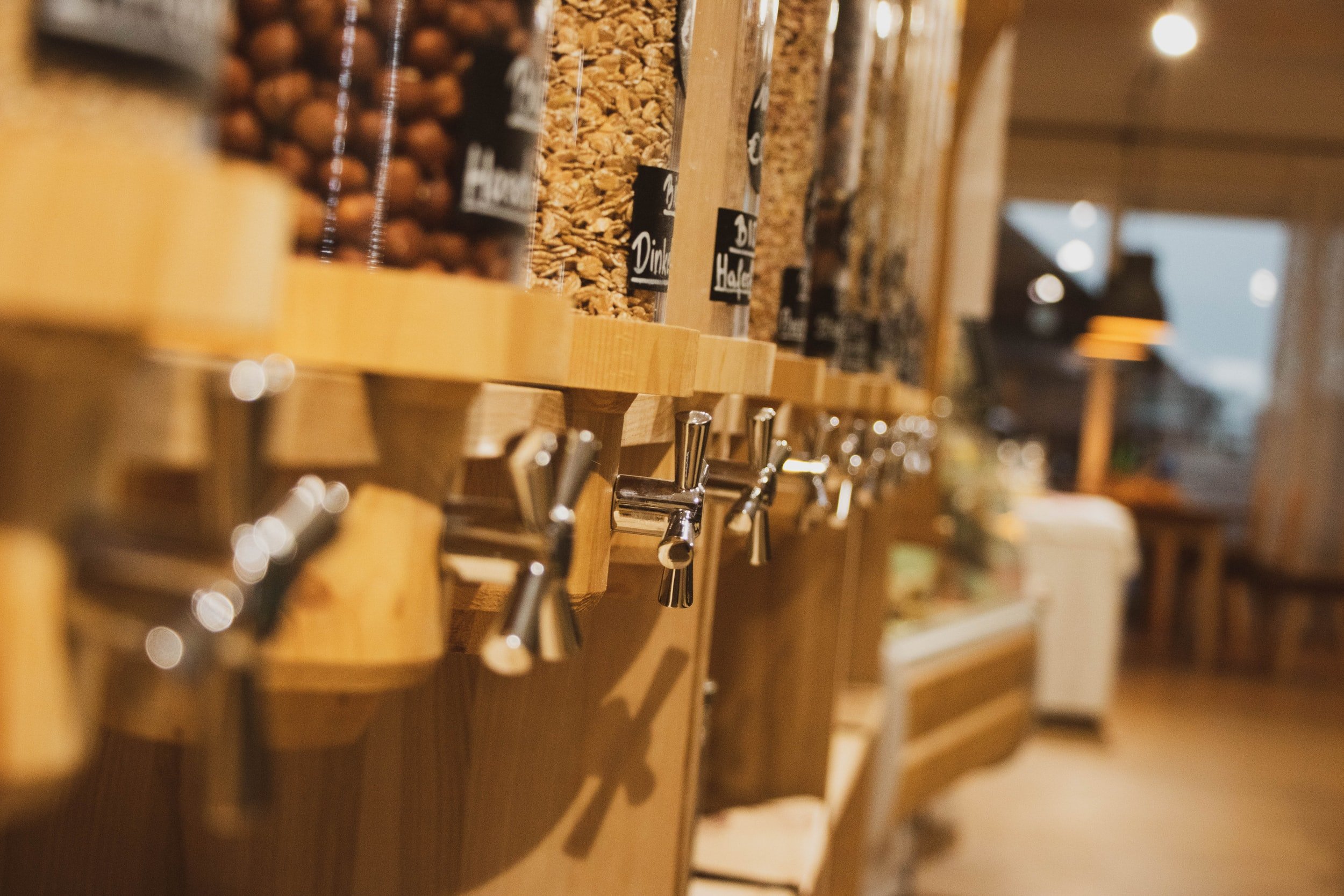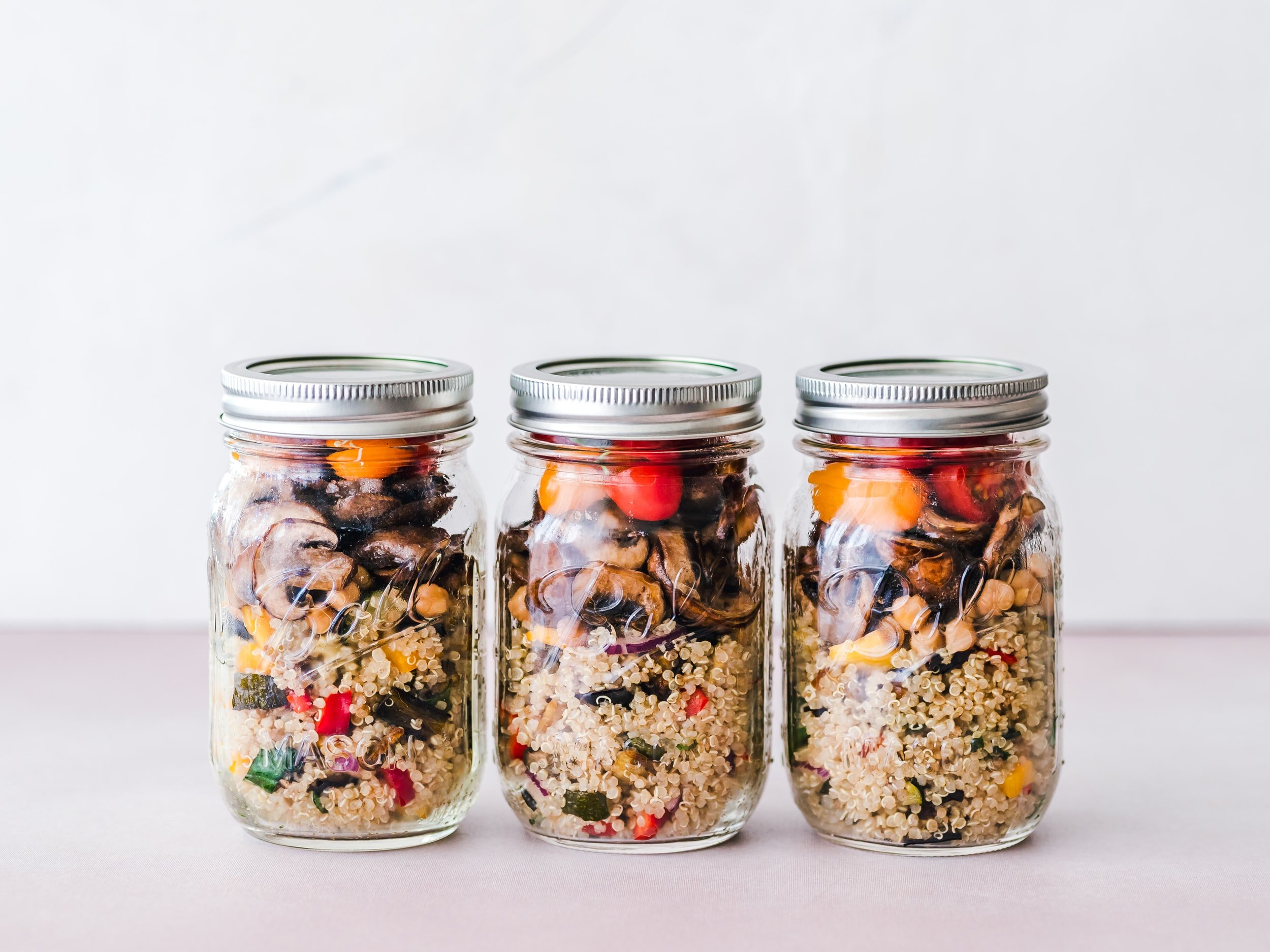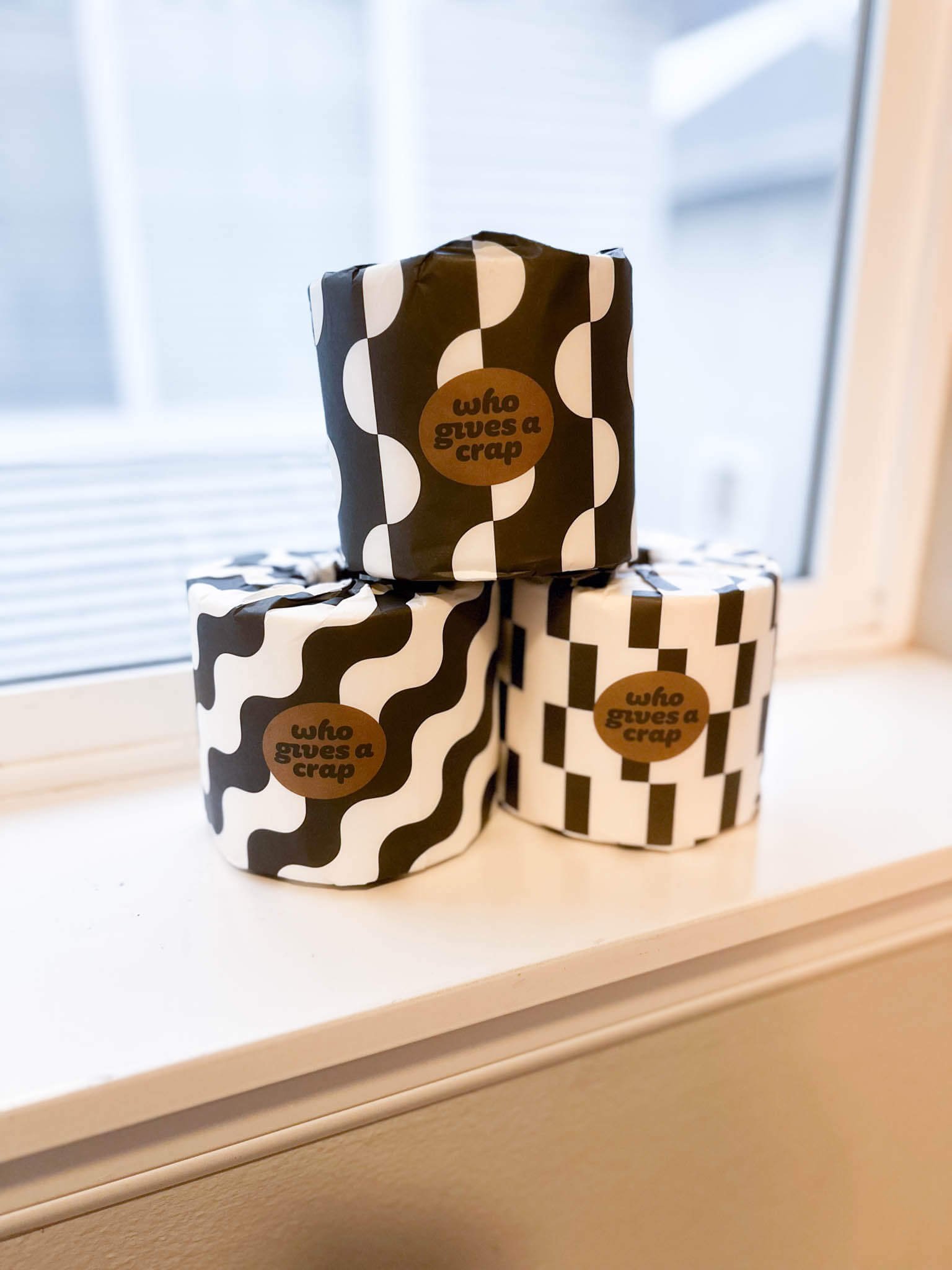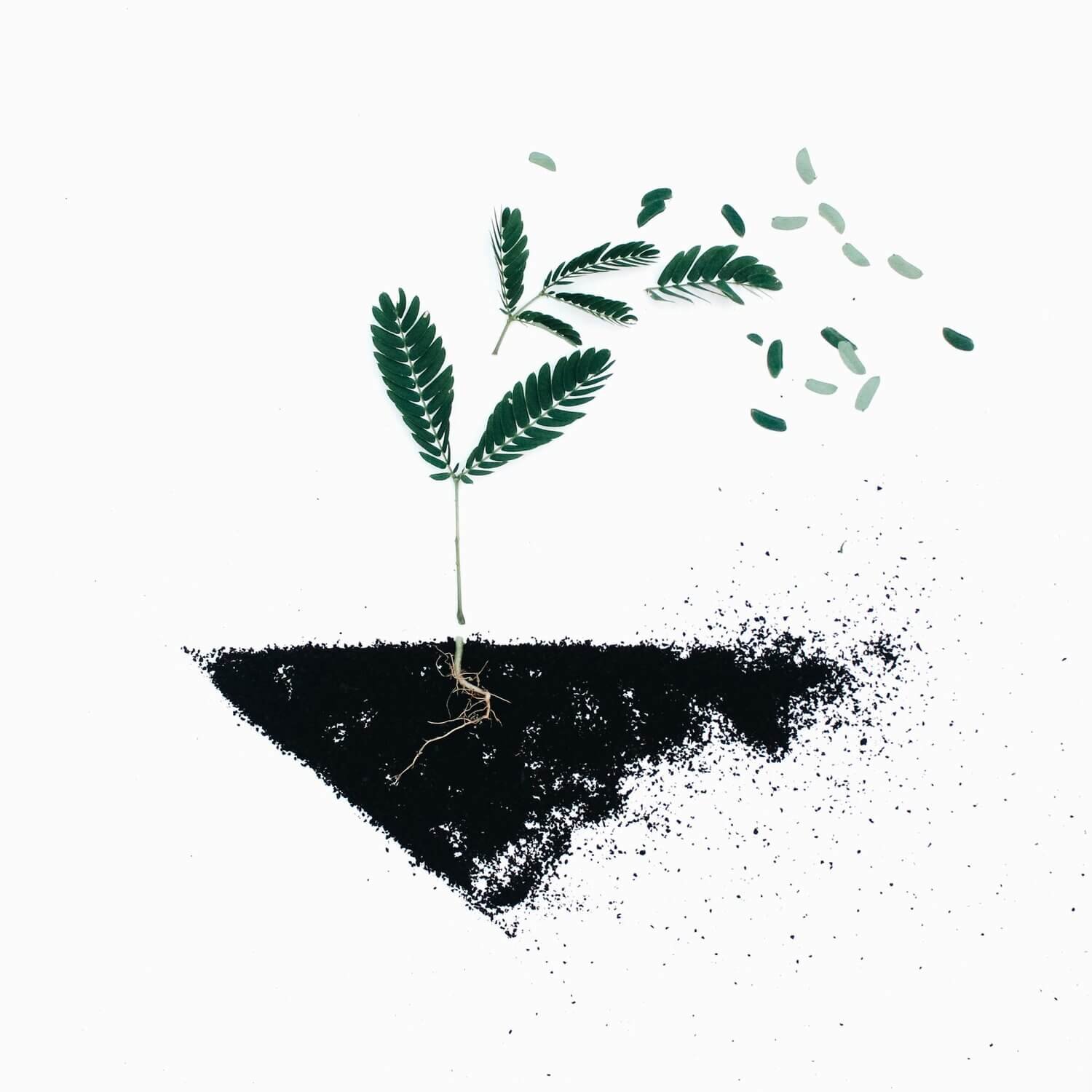14 Easy Ways to Start Living a Zero Waste Lifestyle
What does it mean how to live a zero waste life? For some, it means composting, recycling, and reusing everything. For others, it means reducing consumption overall.
No matter your interpretation, there are countless ways to make your lifestyle more sustainable and environmentally friendly.
This blog post will explore how to live a zero waste life and some of the easiest (and most effective) ways to reduce your waste output and live a more eco-conscious lifestyle.
This post does contain some affiliate links which means The Honest Consumer may receive a commission if you decide to purchase, however, at no additional cost to you!
Am I Living a Zero Waste Lifestyle?
Before we get started, I just wanted to share my own perspective. When I first entered the sustainable living space I was intimidated by the term "zero waste."
Whenever I heard this term I felt like this was an impossible standard for me personally and I kept thinking of the people who can fit all their waste into a mason jar. That was not and still is NOT me. The easiest way for me to begin making zero waste swaps was to reframe this mindset.
I started using the term waste conscious instead of zero waste. I made an effort to reduce my waste and be aware of how much waste I was producing, but removed the pressure of trying to find into a certain definition of zero waste living. So, even if you don't feel like zero waste fits into your everyday life, that is OKAY!
You can still make swaps for better choices and be part of the zero waste movement without having to fit your waste in little glass jars. We're all doing our best and waste conscious living looks different for everyone given the resources we have access to, where we live, and our education.
So here are some tips if you're looking to be more waste conscious or incorporate zero-waste living into certain aspects of your lifestyle.
What Is Zero Waste Life?
The term "zero waste" has become increasingly popular recently, but what does it mean? Zero waste living is a lifestyle change that works to eliminate waste.
This means reusing, recycling, composting organic matter, and refusing packaging and single-use items whenever possible. While it may seem like a daunting task, there are many easy ways to reduce your waste.
For example, you can start by carrying a reusable water bottle, bringing your own bags to the grocery store, and taking a coffee mug with you everywhere you go. These are some pretty easy basics!
People who live a zero-waste lifestyle are usually conscious of their carbon footprint and try to support their local economy to reduce carbon emissions.
Zero waste shoppers typically shop at bulk food stores and their local farmers market to purchase items with minimal or no packaging. Whenever possible, opt for reusable products instead of disposable ones.
However, zero waste living looks different for everyone! Here are a few areas you can get started in reducing your waste!
How To Live A Zero Waste Life?
Lowering your waste is a process, but small steps can make a big difference! Here are some zero waste tips to get you started!
This list features small changes to start your zero waste lifestyle will make you feel like zero waste living is more approachable. Just remember zero waste living is a process and it is not going to happen overnight! Pick a few areas to focus on and expand from there!
Reuse & Recycle Everything You Can.
One of the key points of living a low waste lifestyle is valuing everything you already have! This means plastic packaging, old clothes, old linens, and anything you have around the house.
Before you send something to the recycling think about how you can reuse that item. Can it be upcycled into something new? Can it be reused?
There are so many simple items that can be reused such as glass jars and containers for food storage, old sheets that can be turned into cloth napkins, wine bottles for home decor, and even plastic containers that can be reused for storage.
If, at the end of the day, you feel strongly that an item has come to the end of it's lifecycle and you have no other use for it then recycle. The downside to recycling is that it takes up valuable space and releases harmful chemicals and greenhouse gases into the atmosphere.
Unfortunately, America tends to ship their recycling over seas which increases the carbon footprint. However, producing new products from scratch takes a lot of energy and resources, so recycling typically helps conserve these precious resources.
Compost Food Scraps
Composting your food scraps is a good way to reduce your waste! Composting is breaking down organic matter, such as food scraps, into a nutrient-rich material to help improve the quality and health of soil.
So, this can be great if you have a garden! There are many different ways to compost such as a compost tumbler, backyard compost pile, indoor composting machine, or some cities even have programs where they pick up your compost!
Zero Waste in the Kitchen
Along with composting your food scraps, there are other steps you can take to lower the waste in your kitchen.
Consider swapping paper towels for reusable Swedish dish cloths, kitchen towels, or cut up clothing/sheets your no longer using
Swap out those plastic food storage bags for reusable silicon bags or glass containers.
Eat leftovers!!! Before throwing those leftovers into the compost consider saving them for your next snack!
Bring Your Reusable Bags To The Store.
This is one of the easiest ways to start reducing your waste! Every time you use a plastic or paper bag, you're creating unnecessary waste and think how often you grocery shop?
All of those plastic bags add up! By bringing your own reusable shopping bags this significantly reduces your weekly waste! Plus, those plastic bags often go into the ocean, where they can hurt or kill marine life.
Furthermore, many stores now offer discounts for customers who bring their bags. So not only are you helping the environment, but you're also saving money!
However, if you forget your own bags ask for paper bags to avoid the plastic waste! At our house we reuse the paper grocery bags to hold our weekly recycling!
You can even go the extra mile and bring your own cloth bags to use as reusable produce bags! A lot of grocery stores only offer plastic bags for carrying your loose produce, but it's super easy to bring your own bags for produce!
If you use a cloth bag you can easily throw it in the laundry machine every week to clean for the next use!
Buy In Bulk To Reduce Packaging Waste.
Another way to reduce your household waste is to start buying in bulk. This can help to reduce the amount of packaging waste that you produce.
Since you would be purchasing less often, this helps to reduce the amount of waste that goes into the trash. Consumers can save money by buying bulk since you often get a discount when purchasing more significant items.
In addition, buying in bulk helps to reduce the amount of time you spend driving and shopping since you can make more of your purchases in one trip.
When we think of buying in bulk we typically think of Costco or Sam's, these giant name brand stores, but for low waste consumers there are some really awesome zero waste shops that allow consumers to bring their own containers, purchase food in bulk, refill household cleaning supplies, and feature some creative ways to make grocery shopping more sustainable.
However, finding a bulk zero waste shop is dependent on where you live! You can also find some online zero waste shops!
Bring Your Reusable Container For Take-Out Food or Leftovers
Bringing our reusable containers for take-out food or leftovers is a great way to reduce the amount of plastic waste and food waste created. Stojo offers some great collapsable containers that are great for throwing in your purse. It's also great to take your own reusable cutlery too!
Zero Waste in the Bathroom
It's important to evaluate our daily routines in the bathroom from skincare to showers! We typically use a lot of plastic packaged products on a daily basis, but here are a few easy bathroom swaps to lowers your waste.
Consider switching to shampoo bars and conditioner bars to reduce the amount of plastic waste created in the bathroom.
Look for skincare and beauty products with reusable or compostable packaging. This can be as easy as switching from a body wash in a plastic bottle to bar soap.
Consider swapping out toilet paper for a bidet OR a more sustainable toilet paper alternative. I personally use bamboo toilet paper because it comes free of plastic wrapping and is not bleached.
Grow Your Own Food in a Backyard Garden
Growing your own food is a sustainable way to eliminate plastic packaging from the grocery store.
Start a garden in your backyard to add some fresh food to your diet! Consider what herbs, fruits, and vegetables you use the most in your kitchen and start by trying to grow those!
There are also some really cool indoor gardens! This can also reduce the amount of shopping trips you take to the grocery store, further reducing your carbon emissions.
If starting a garden on your own seems too overwhelming then consider starting a community garden with your neighbors. This can be a great way to get a lot of people involved, further educate your community, and build relationships over sustainability.
Shop Secondhand
If you do need something new a lot of consumers living a low waste lifestyle will purchase second-hand clothing and home goods. Purchasing secondhand is more sustainable because there are not resources being use to create new items.
So head to your local thrift shop to pick up holiday gifts for your loved ones, clothing, home decor, furniture, and more.
Make Your Laundry Routine More Sustainable
Most laundry detergent comes in plastic bottles and encourages over-pouring! This is harmful in multiple ways. This sends a lot of plastic bottles to the landfill and the over-use of detergent can actually be harsh on your clothing causing fibers to break down faster.
Consider switching to a more eco-friendly detergent. I use Dropps laundry detergent because the packaging is eco-friendly and the detergent is plant-based. This detergent has been great for my sensitive skin.
Also consider swapping out those disposable dryer sheets for reusable wool dryer balls! This way you're not throwing out a dryer sheet after every load of laundry! That adds up!
Avoid Single-Use Plastics Whenever Possible.
Most of us are guilty of using single-use plastics daily, whether grabbing a coffee in a to-go cup or packing our lunch in a plastic container.
While it's easy to overlook the environmental impact of these items, the truth is that they are damaging our planet. Single-use plastics add up and often end up in landfills, where they can take centuries to break down.
Plus, the continuous production of single use plastics is contributing to climate change. The good news is that many simple ways to reduce our reliance on single-use plastics.
Bring your coffee mug to coffee shops, bring your own water bottle and ditch the plastic the plastic water bottles, pack your lunch in a reusable container, and say no to plastic straws and shopping bags. Every little bit makes a difference!
Educate Yourself And Others About Zero Waste Living.
The average American generates about 4.9 pounds of trash daily- that's a lot of waste! If you're interested in learning more about zero waste living, plenty of resources are available online and in libraries.
And once you've educated yourself on the topic, you can help spread the word to others. With more people working together, we can make a real difference in the fight against waste. The more people we have working to reduce the amount of trash they produce, the bigger the impact!
One of the more popular books in the sustainable living community is 101 Ways to Go Zero Waste by Kathryn kellogg! Consider looking for this book at your local library as this is a great place to start learning.
Why Is Zero Waste Important?
Reducing our waste is something we can do on an individual level that makes a huge impact.
One of the most important is that it can help protect the environment. When we generate less waste, we send less trash to the landfill, which means there is less chance of toxins leaching into the ground and contaminating our water supply.
In addition, by reducing our reliance on disposable items, we create less demand for virgin materials, which helps preserve our natural resources.
Zero waste living also reduces greenhouse gas emissions, as it takes less energy to recycle materials than it does to produce new products from scratch.
Finally, zero waste can also save people save money! When we're reusing and valuing what we already have, we are typically consuming less!
Tips for Going Zero Waste
Pick one area of your life to focus on. This could be the kitchen, your bathroom routine, etc. This helps reduce the overwhelm. Once you have mastered this area of your life add on another. Don't feel like you have to do everything at once.
Going zero waste is a process! Remember that!
Don't immediately go out and purchase all the zero waste gear! A lot of people make it seem like you have to have all these zero waste products to be part of the movement, but the reality is you can just start with what you have at home. Overtime you might want to invest in some of the zero waste products, but don't go spending all your money right away! I guarantee you have reusable items in your cabinets already.
Pick a friend to help hold you accountable! Plus, it's more fun to do with a buddy anyway!
Remember that it's okay to mess up! Don’t be too hard on yourself. Every time you mess up you are learning.
So, there you have it! Some wonderful tip on how to start living a zero waste life. It may seem daunting at first, but with a little effort and determination, you can reduce your waste. We hope this article has helped give you the motivation and information you need to start your own zero waste journey.
For more tips & tricks on sustainable living be sure to follow The Honest Consumer on social media, subscribe to our newsletter, & check out the Ethical & Sustainable Brand Directory.























